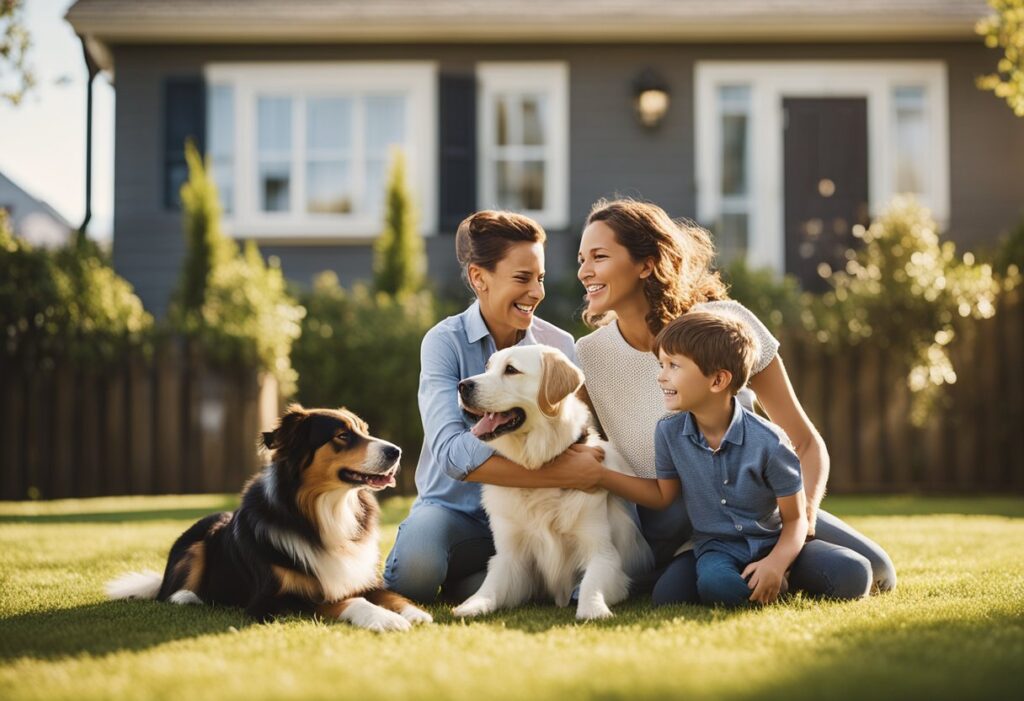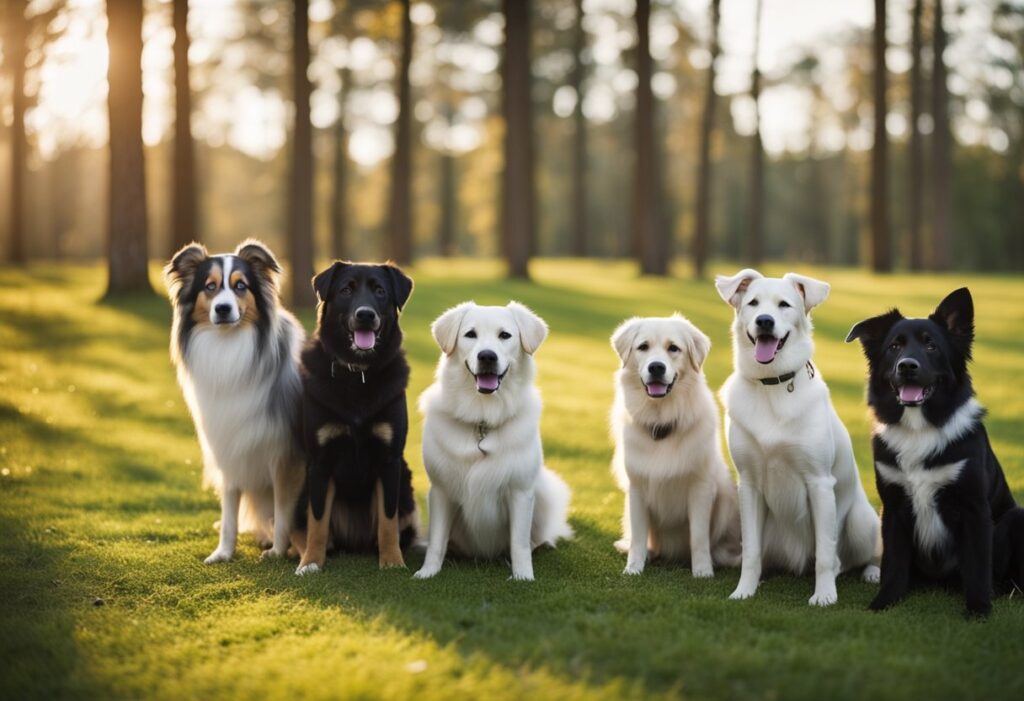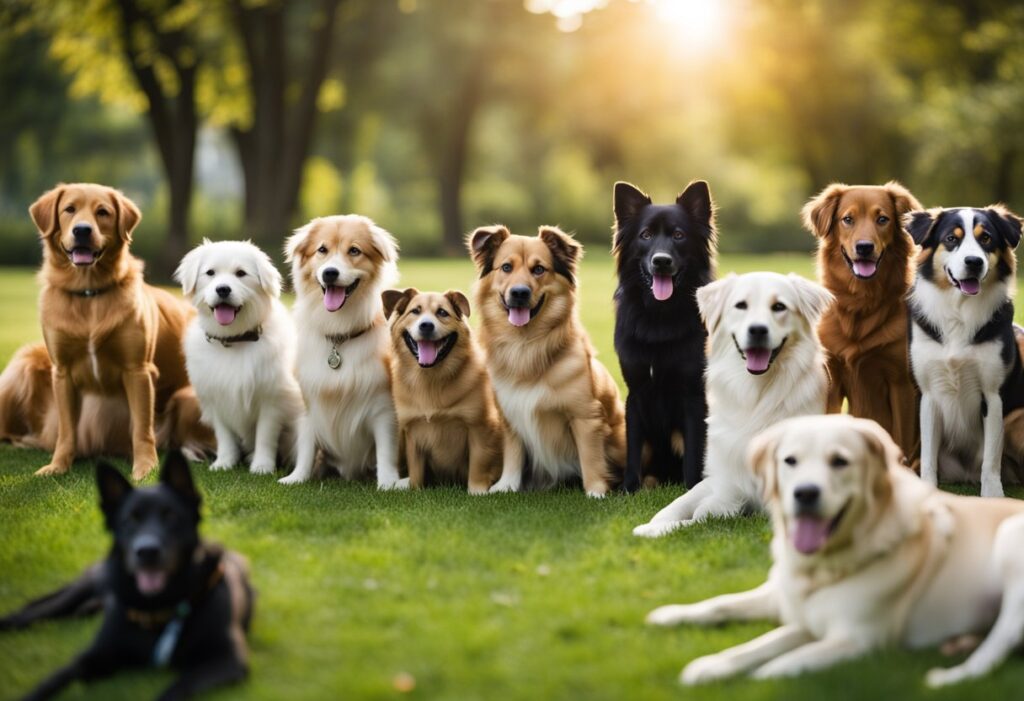Choosing the right dog for a family is an important decision that can enhance everyone’s quality of life. This article explores the 10 best family dogs, focusing on breeds known for their temperament, compatibility, and ease of care. Families must consider their lifestyle and home environment when selecting a dog to ensure a harmonious relationship.
Each breed has unique characteristics that can complement or challenge a family’s dynamics. By examining the top choices, families can find a furry companion that matches their activity level, space, and the ages of their children.
1) Labrador Retriever
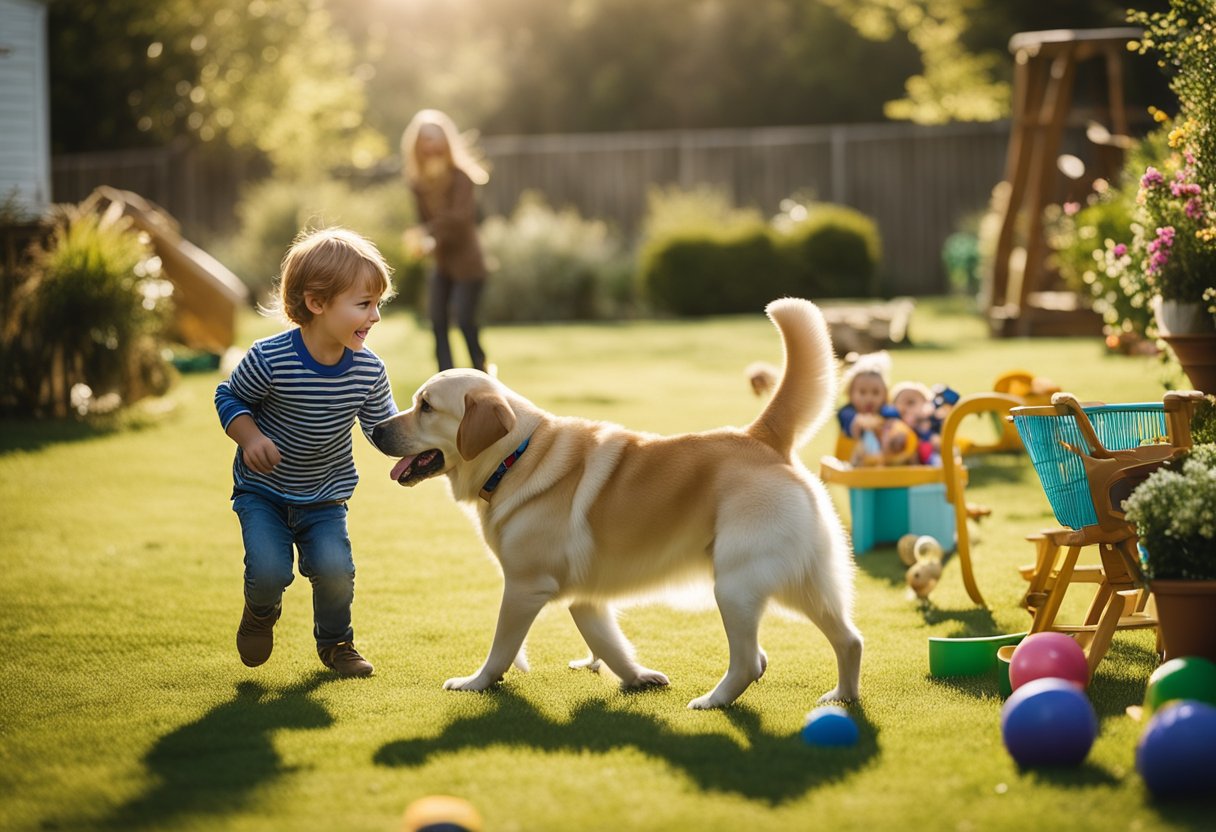
The Labrador Retriever is one of the most popular family dogs. Known for their friendly and outgoing nature, they make excellent companions.
These dogs are highly intelligent and eager to please, which makes training relatively easy. They respond well to positive reinforcement and enjoy learning new commands.
Labradors are also known for their playful spirit. They thrive in active households and require regular exercise to stay healthy and happy.
Their gentle temperament makes them great with children. Labs are typically patient and protective, forming strong bonds with family members.
Often used as service and therapy dogs, their versatility adds to their appeal. They are adaptable and can fit into various living situations, from apartments to larger homes.
With proper care and socialization, a Labrador can be a loyal and loving part of the family.
2) Golden Retriever
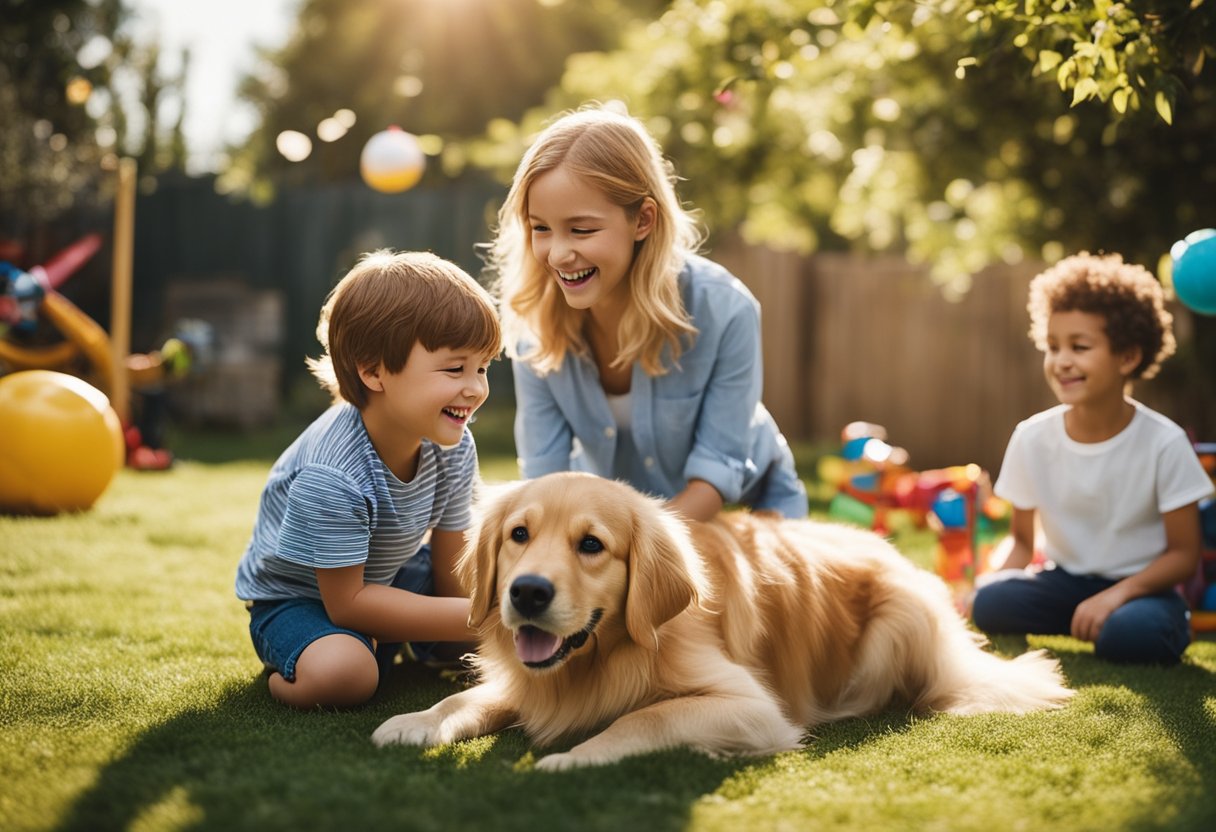
Golden Retrievers are renowned for their friendly disposition. They are highly sociable and often get along well with children and other pets. Their gentle nature makes them an ideal choice for families.
This breed is intelligent and eager to please, which simplifies training. They respond well to positive reinforcement and can quickly learn commands and tricks.
Golden Retrievers require regular exercise to stay healthy and happy. Daily walks, playtime, and mental stimulation are essential to prevent boredom.
Their beautiful golden coats do require grooming. Regular brushing helps manage shedding and keeps their fur healthy.
With their loyalty and affection, Golden Retrievers form strong bonds with family members. They thrive on companionship and enjoy participating in family activities.
3) Beagle
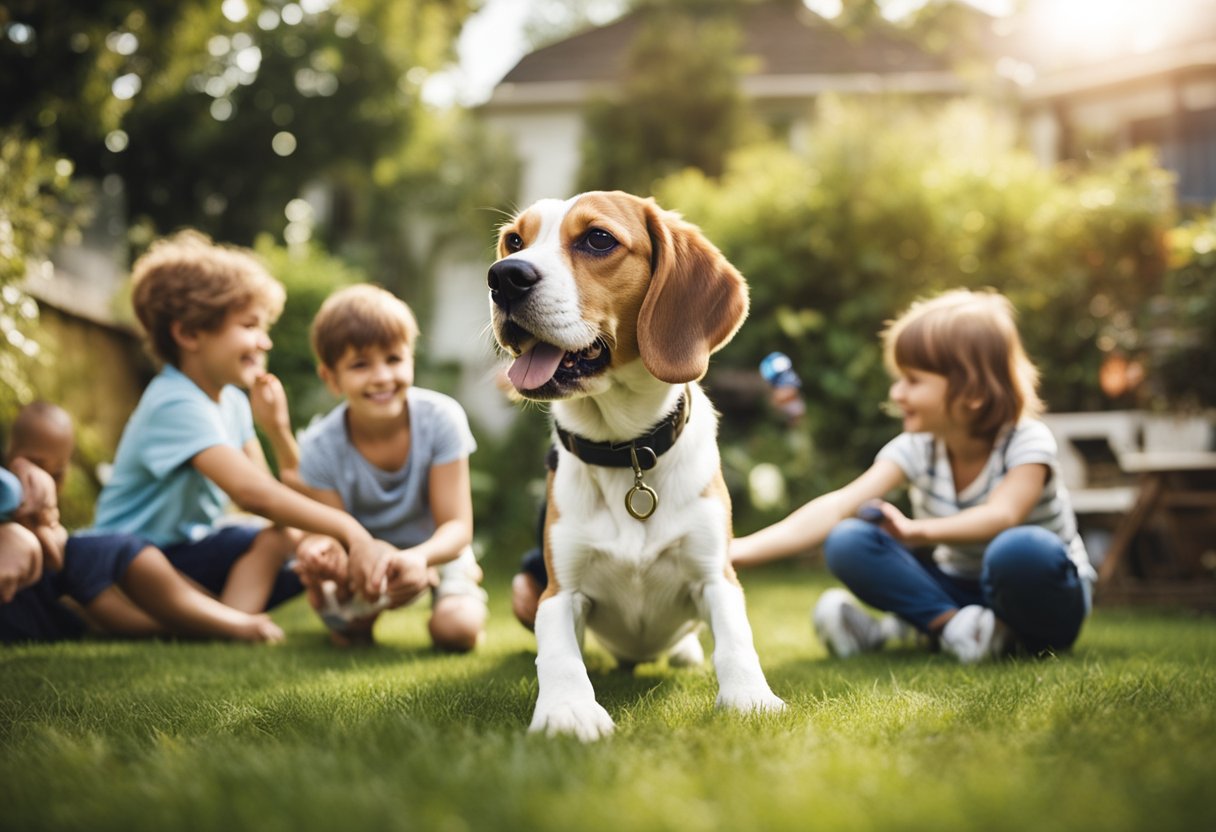
Beagles are known for their friendly and curious nature. They make excellent family pets due to their sociable temperament and love for children.
This breed is small to medium-sized, typically weighing between 20 to 30 pounds. Beagles are active and require regular exercise to stay healthy and happy.
Their keen sense of smell makes them great for activities like tracking and hiking. Beagles are also known for their playful demeanor, often engaging in fun activities with family members.
Training a Beagle can be challenging due to their independent spirit. Consistent and positive reinforcement methods work best for encouraging good behavior.
Beagles generally get along well with other pets and are known for their loyalty. Their cheerful disposition and affectionate nature can bring joy to any household.
4) Cocker Spaniel
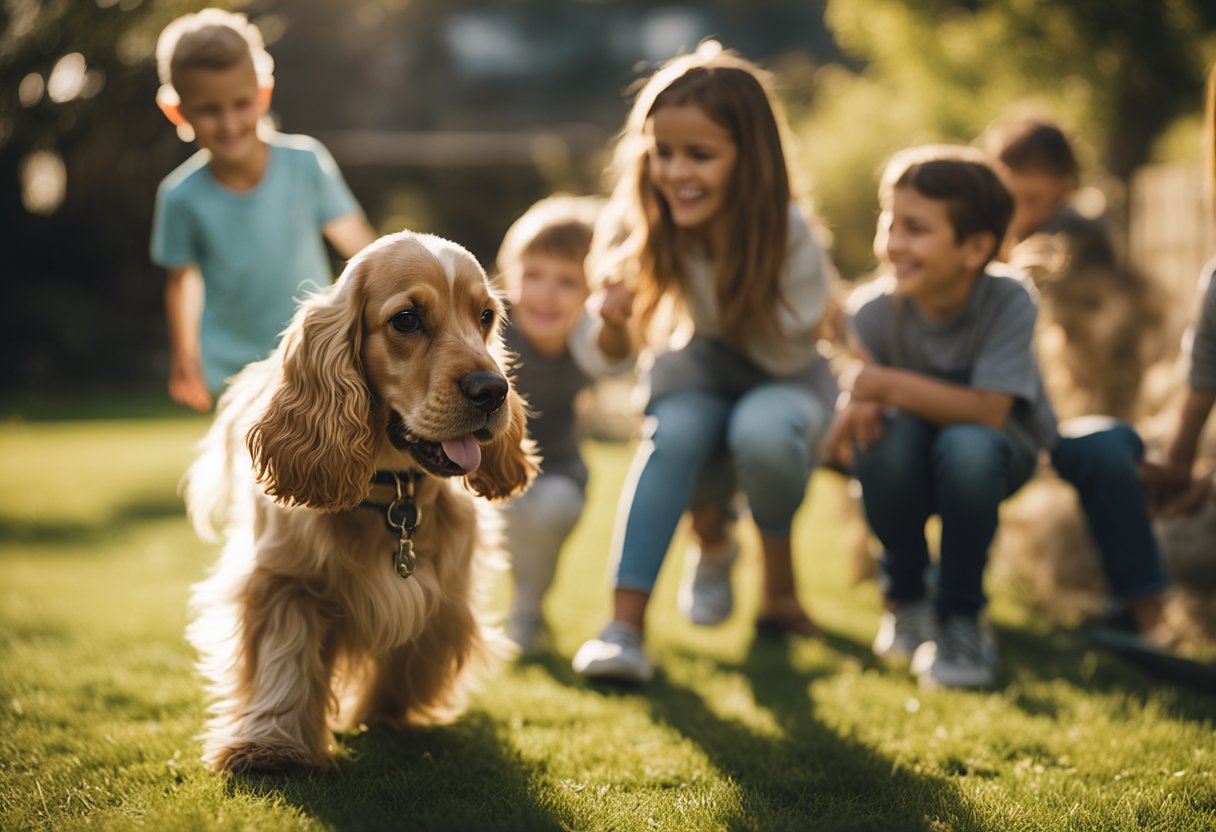
Cocker Spaniels are friendly and affectionate dogs, making them excellent family pets. They often bond closely with children and can be very playful.
These dogs are known for their beautiful coats and expressive eyes. Regular grooming is necessary to keep their fur in good condition.
Cocker Spaniels are generally good with other pets too. Their gentle disposition helps them adapt well in multi-pet households.
They require daily exercise to stay healthy and happy. Regular walks and playtime are essential for their well-being.
Training is important for Cocker Spaniels. They are intelligent and eager to please, which can make obedience training enjoyable.
5) Bulldog
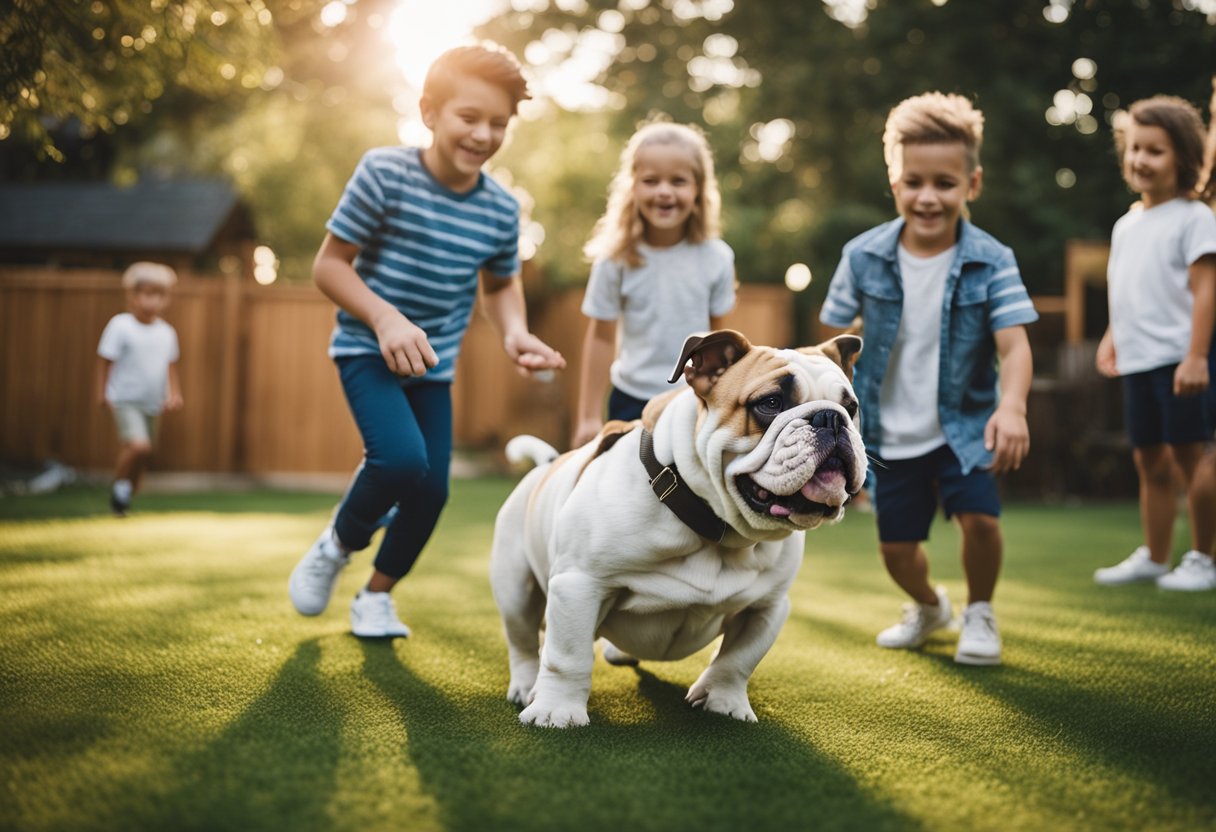
The Bulldog is known for its distinctive appearance and gentle temperament. This breed is often characterized by its loose, wrinkled skin and muscular build. Bulldogs are typically calm and friendly, making them suitable companions for families.
They are generally good with children and can be quite affectionate. Their relaxed nature makes them well-suited for indoor living. Bulldogs do not require extensive exercise, but they enjoy short walks and playtime.
These dogs are also known for their loyalty and protective instincts. While they may appear intimidating, Bulldogs are usually gentle and easygoing. Their unique personality and charm contribute to their popularity as family pets.
Potential owners should be aware of health issues that may arise, particularly related to breathing. Regular veterinary check-ups can help maintain their health and well-being.
6) Poodle
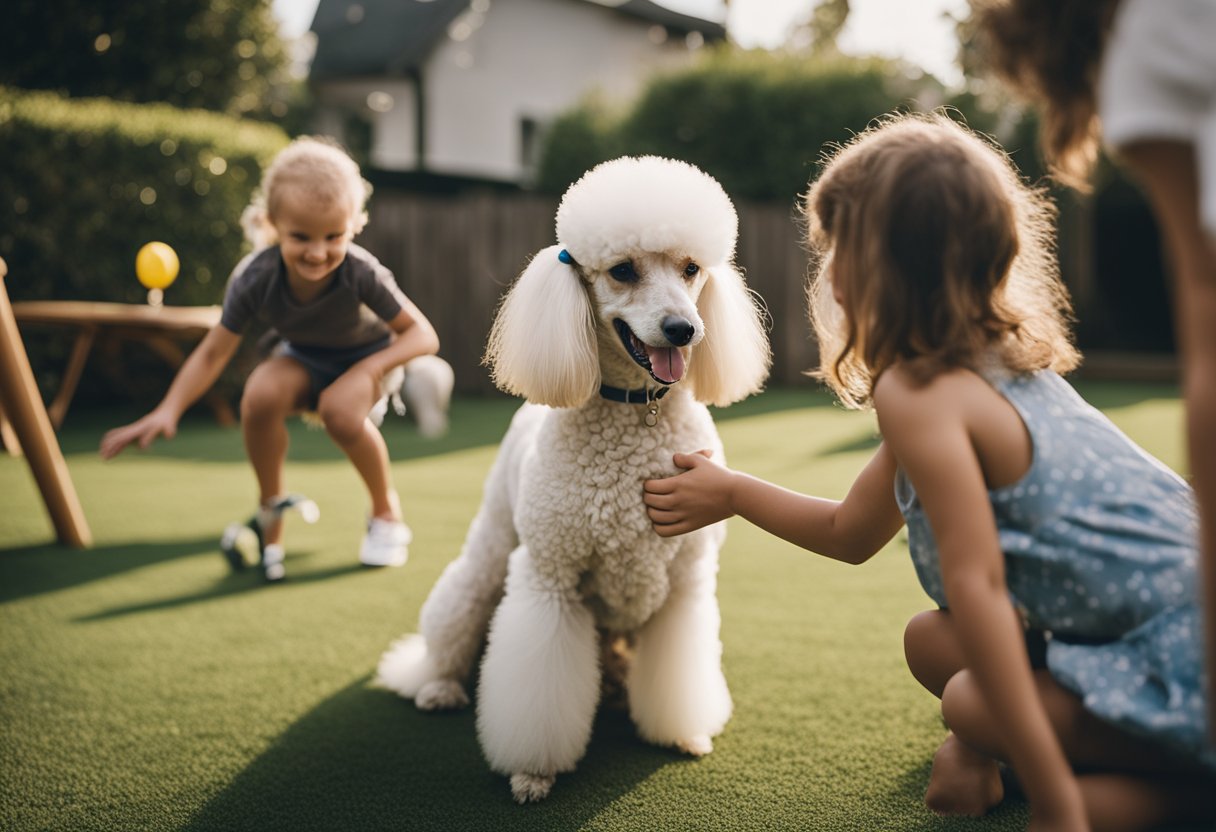
Poodles come in three sizes: standard, miniature, and toy. This variety allows families to choose a dog that best fits their living situation and lifestyle.
They are known for their intelligence and trainability, making them excellent companions for children. Poodles are eager to please and respond well to positive reinforcement training methods.
Their hypoallergenic coat reduces shedding, which can be helpful for allergy sufferers. Regular grooming is necessary to maintain the coat’s health and appearance.
Poodles are active dogs that require daily exercise. They enjoy activities such as fetch, swimming, and agility training, which can keep the whole family engaged.
Socializing Poodles from a young age is important to ensure they are friendly and well-adjusted. They typically get along well with other pets and children.
7) Bichon Frise
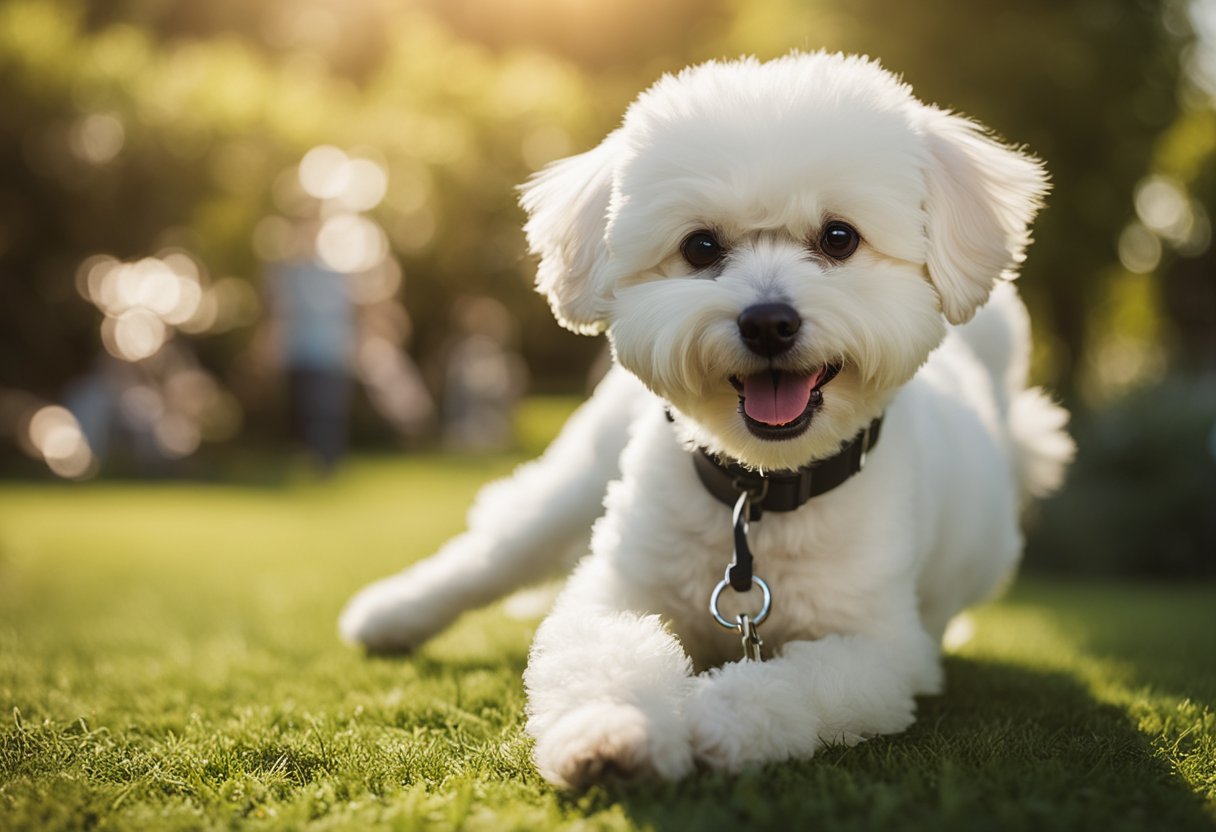
The Bichon Frise is recognized for its cheerful disposition and playful nature. This breed is affectionate, making it a great companion for families.
Bichon Frises are small, typically weighing between 12 to 18 pounds. Their fluffy, hypoallergenic coat requires regular grooming to maintain its appearance.
These dogs are known for being intelligent and trainable. They respond well to positive reinforcement, which makes training enjoyable for both the dog and the owner.
With a sociable personality, Bichon Frises tend to get along well with children and other pets. Their playful demeanor allows them to engage actively with family members.
This breed thrives on companionship and does not like to be left alone for long periods. They can develop separation anxiety if neglected, so family interaction is essential.
8) Boxer
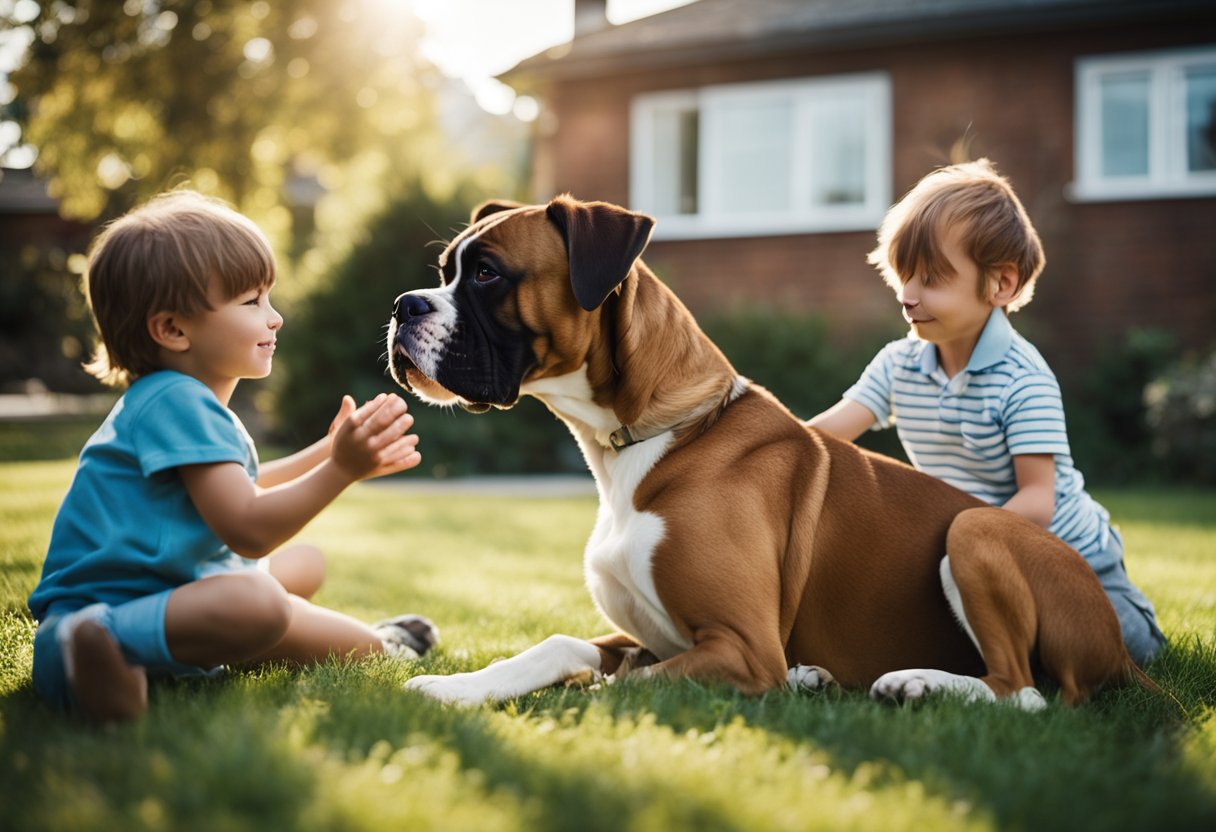
Boxers are known for their playful and energetic demeanor. They are loyal companions, making them great family dogs. Their protective nature helps them bond closely with children.
This breed requires regular exercise to stay healthy and happy. Daily walks and playtime are essential to meet their energy levels. Boxers enjoy activities that involve agility and intelligence.
Boxers are also known for their affectionate nature. They thrive on companionship and tend to be very social with both families and strangers. Their friendly disposition makes them a favorite among families.
Training a Boxer can be rewarding, as they are intelligent and eager to please. Positive reinforcement works best with this breed. Consistency in training is key to raising a well-behaved dog.
Overall, Boxers tend to be good with children and can adapt well to various living situations. Their playful spirit and loyalty make them a wonderful choice for families looking for an active and loving pet.
9) Shih Tzu
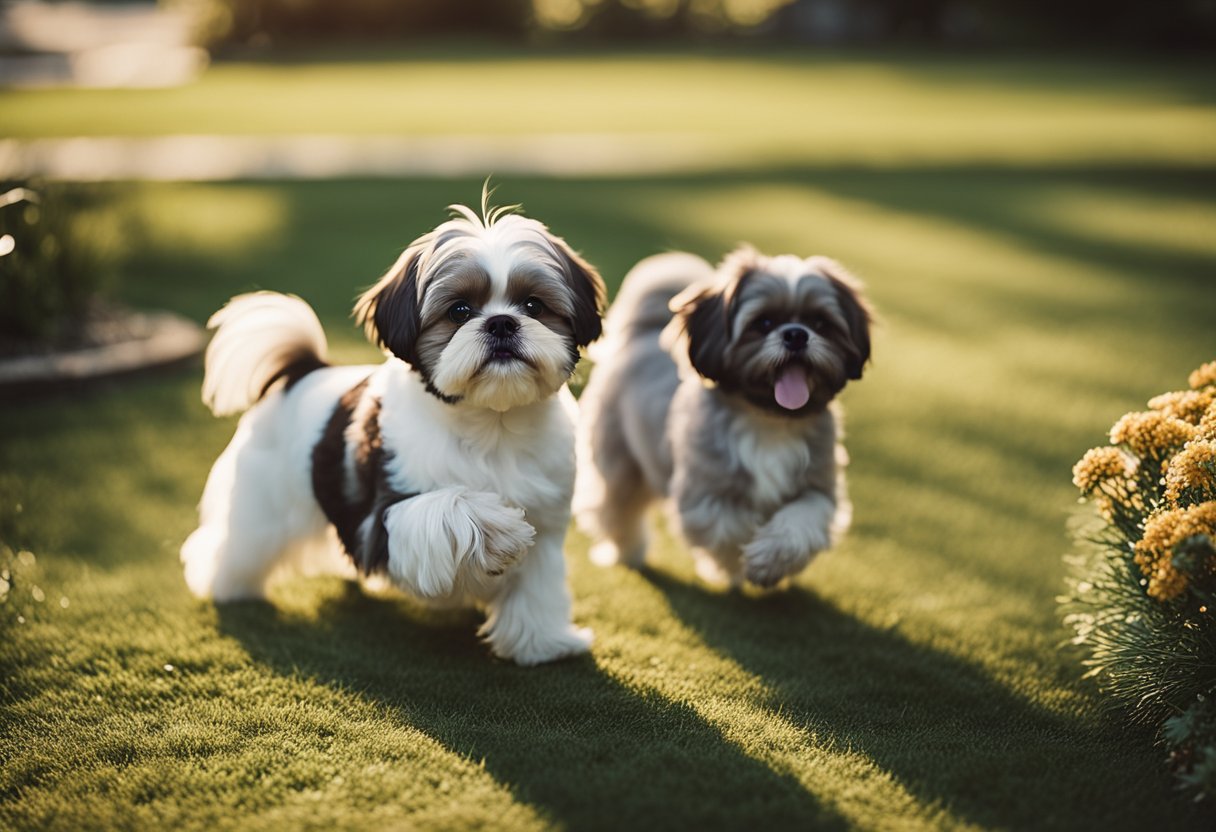
The Shih Tzu is a small dog breed known for its friendly disposition and affectionate nature. They are well-suited for families due to their playful characteristics and adaptability.
These dogs are generally good with children and other pets. Their gentle temperament makes them ideal companions in various household settings.
Shih Tzus require regular grooming to maintain their long, flowing coat. This breed is also known to be relatively low-energy, making them suitable for apartment living.
Training them can be straightforward, as they are eager to please. Consistent, positive reinforcement works best with this breed.
Due to their size, they do not require extensive exercise, but daily walks are beneficial. This breed thrives on companionship and should not be left alone for long periods.
10) Newfoundland
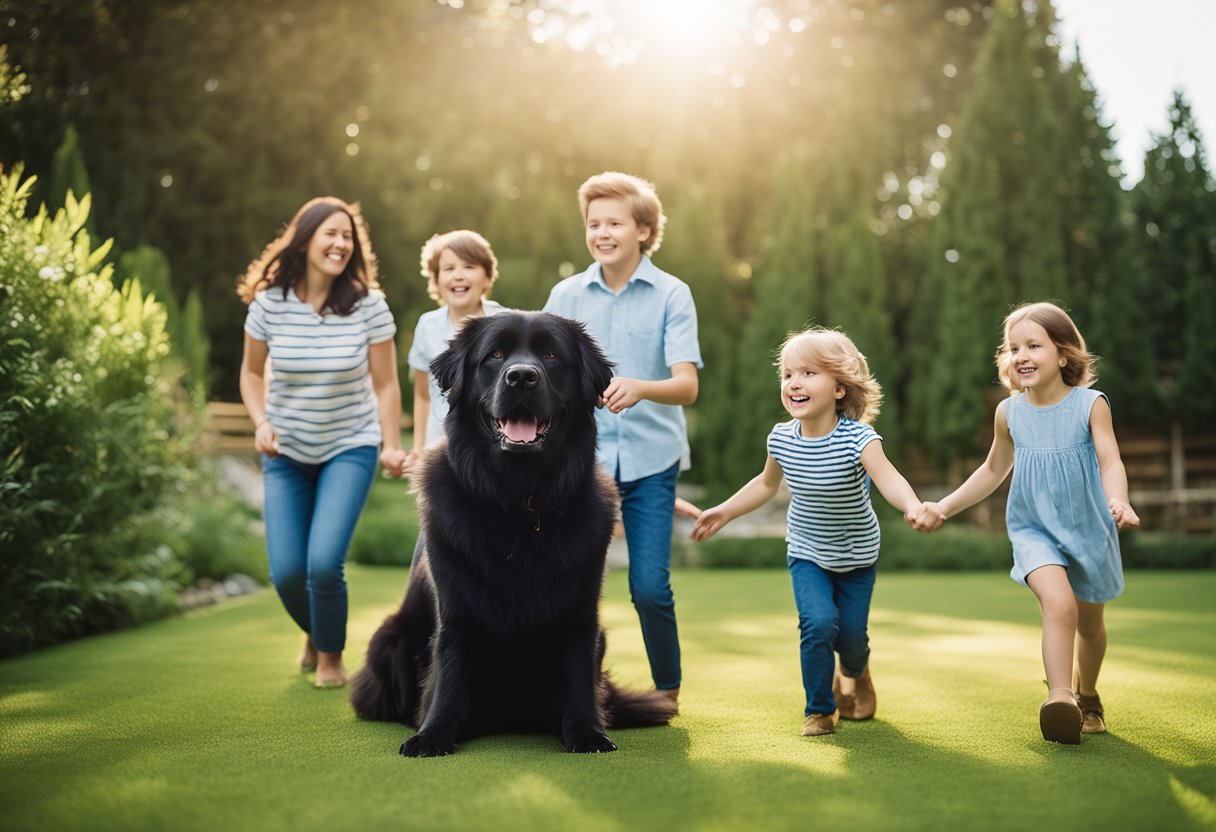
The Newfoundland is a large, gentle dog known for its friendly nature. This breed is excellent with children, making it a popular choice for families.
Newfoundlands are often described as reliable and patient companions. Their calm temperament helps them adapt well to family life.
These dogs are also known for their strong swimming abilities. They were originally bred for water rescue due to their powerful build and webbed feet.
Newfoundlands require regular exercise but are not overly demanding. A daily walk and some playtime are usually sufficient to keep them happy.
Their thick, water-resistant coat requires routine grooming to prevent matting. This breed sheds moderately, so families should be prepared for some dog hair around the house.
With proper training and socialization, Newfoundlands can be excellent family pets. They are known to bond closely with their families and can be very protective.
Characteristics of Family-Friendly Dogs
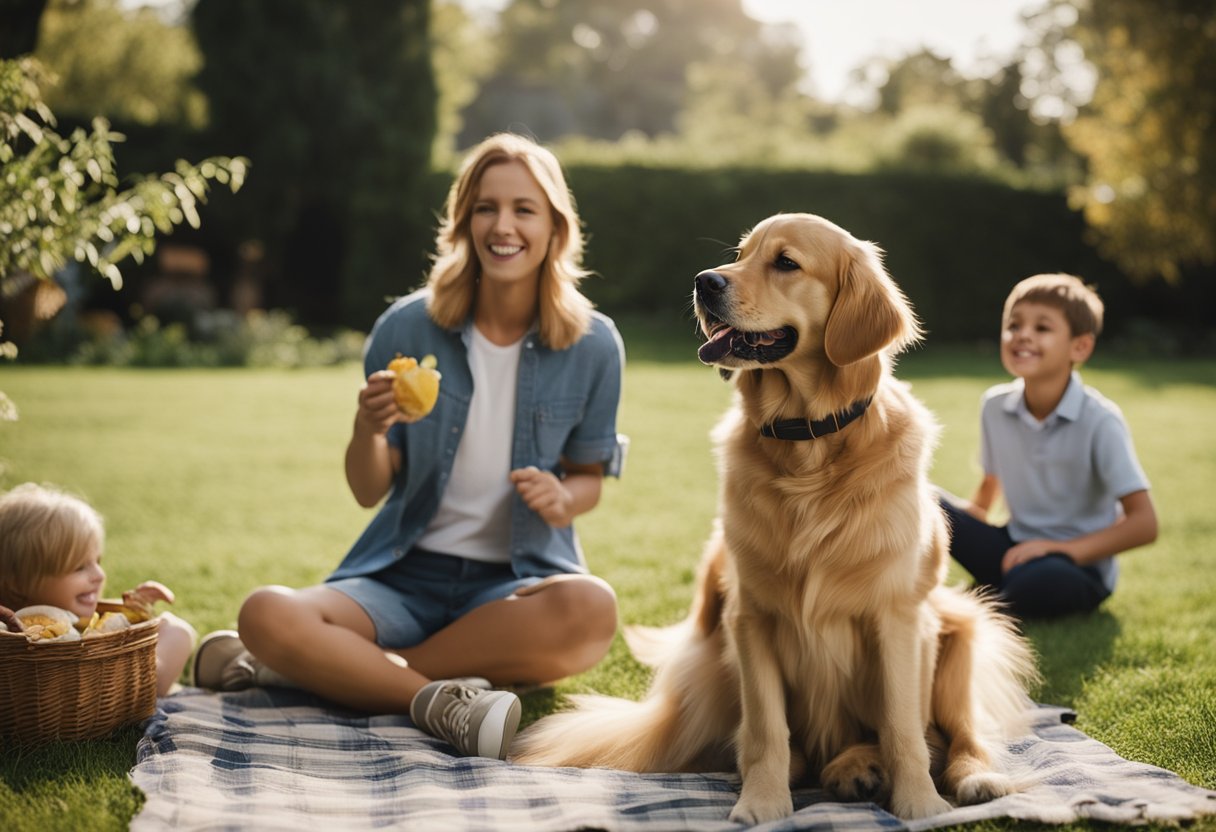
Selecting a family-friendly dog involves evaluating several key characteristics. These factors include temperament, size, and the ability to train and socialize effectively. Understanding these traits helps in choosing a dog that integrates well into family life.
Temperament and Behavior
A family-friendly dog typically exhibits a gentle and friendly temperament. Such dogs are usually patient, especially with children. They often show a tolerant nature towards playful behavior, making them ideal companions for families.
Key traits include:
- Affectionate disposition: Enjoys physical contact and interaction.
- Playfulness: Engages joyfully with children and enjoys family activities.
- Loyalty: Forms strong bonds with family members, providing a sense of security.
Dogs that are social and enjoy group activities tend to thrive in family settings. They should be adaptable to various situations, including gatherings and outings.
Size Considerations
The size of the dog can significantly influence its compatibility with a family. While large breeds can be gentle giants, smaller breeds may be more suitable for apartments or smaller homes.
Size categories include:
- Small (e.g., Beagle, Pug): Easier to manage and can adapt to smaller spaces.
- Medium (e.g., Bulldog, Cocker Spaniel): Balanced size allows for great play without overwhelming young children.
- Large (e.g., Labrador, Golden Retriever): Strong, protective, and generally good with kids, but may require more space and exercise.
Understanding the living environment and family dynamics is essential when considering size.
Training and Socialization
Training and socialization are crucial for family-friendly dogs. Early exposure to various environments, people, and other pets creates a well-rounded dog.
Key components of training include:
- Basic commands: Teaching simple commands like “sit,” “stay,” and “come” increases safety and control.
- Social interaction: Encouraging interactions with different animals and people prepares the dog for diverse situations.
- Positive reinforcement: Rewarding good behavior fosters a trusting relationship between the dog and family.
A well-trained dog is more likely to behave appropriately in family settings, ensuring a harmonious home environment.
Benefits of Having a Family Dog

Having a family dog offers a wide range of advantages that enrich the lives of family members. From emotional support to promoting a healthy lifestyle, dogs can have a profound impact on family dynamics and well-being.
Emotional and Social Benefits
Dogs provide companionship that can enhance emotional health. They have a unique ability to sense human emotions and often respond with affection and support. This bond can help reduce feelings of loneliness and anxiety.
Families with dogs tend to strengthen their social connections. Walking a dog or participating in dog-related activities can lead to interactions with other pet owners. This fosters community and social ties that might not develop otherwise.
Children can also gain essential social skills by engaging with a dog. They learn empathy, responsibility, and cooperation through daily interactions like feeding and grooming. Such experiences contribute to their emotional development and interpersonal skills.
Health and Physical Activity
Having a dog encourages regular physical activity for the entire family. Daily walks or play sessions not only benefit the dog but also promote fitness among family members. Engaging in these activities helps combat sedentary lifestyles.
Research indicates that dog owners often have lower blood pressure, reduced stress levels, and even improved cardiovascular health. The responsibility of dog ownership prompts families to develop consistent routines that prioritize movement and exercise.
Furthermore, children who grow up with dogs are more likely to engage in outdoor activities. Exposure to pets can also strengthen their immune systems, potentially reducing allergies and asthma episodes. This holistic approach to health underscores the importance of having a family dog.

